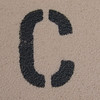
If you discover that your child is definitely taking drugs:
- Take a balance, calm view. Avoid over reaction or tearful recriminations.
- Obtain as much information as possible from your child about the extent, duration and circumstances of the drug use.
- Check if your child is ready to have help to handle the drug problem. If so, offer all support you can and arrange to see your GP or any suitable professional assistance.
- If your child is not ready to take help, insist on a discussion with an expert to clarify knowledge and attitudes.
- Take a clear, strong position that drug use is unacceptable and know the reasons why, draw your child’s attention to his or her behaviour, moods and deterioration, both physically and religiously.





















